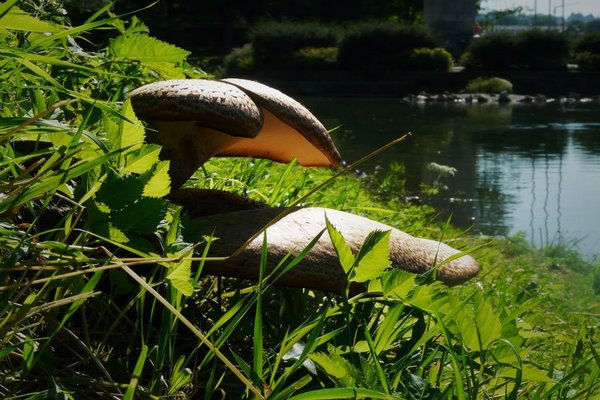On an expedition to the Ecuadorian rainforest, Yale students discovered a new type of fungus which may speed up the decomposition process of discarded plastics in landfills.
Few think twice about what to do with their disposable water bottle after they’ve drunk its contents, but environmentalists are aware that it is the entire ecosystem which has to pay the price for misguided actions in the present.
Currently, Americans discard about 33.6 million tons of plastic each year. Only 6.5 percent of it is recycled and 7.7 percent is combusted in waste-to-energy facilities, which create electricity or heat from garbage. In result, there is a massive amount of non-biodegradable materials being tossed into landfills with a wait of about 1,000 years or so before they decompose. What’s worse, many of these materials may leak pollutants into the soil and water.
But thanks to a group of Yale students who discovered a new type of fungus in the Ecuadorian rainforest, a semi-solution may soon be available to help speed up the decomposition process of plastics sitting in landfills.
Students from Yale’s Department of Molecular Biophysics and Biochemistry discovered a previously unknown type of fungus that has a hearty appetite for polyurethane, a polymer that is used in everything from hard plastics to synthetic fibers.
As shared by Fast Company, the fungus is the first one that is known to survive on polyurethane alone, and it can do so in an anaerobic (oxygen-free) environment, suggesting it could be used at the bottom of landfills.
“Many microbes can do cool tricks, like degrading pollutants,” said Jonathann Russell to the Yale alumni magazine. But a large reason plastics like polyurethane take so long to break down is that microorganisms don’t typically recognize it as food, therefore it can take centuries for man-made polymers to break down into microscopic granules.
But the discovery of Pestalotiopsis microspora may change all that.
The students of Yale isolated the enzyme that enables the fungus to break down plastic then observed its potential.
“The broad distribution of activity observed and the unprecedented case of anaerobic growth using [polyester polyurethane] as the sole carbon source suggests that endophytes are a promising source of biodiversity from which to screen for metabolic properties useful for bioremediation,” they wrote in a report published in the journal Applied and Environmental Microbiology.
No doubt the first step in reducing environmental pollution is to completely eliminate the production of materials which take thousands of years to biodegrade, and second, to re-use or recycle already produced materials into new form.
Ultimately, however, this finding opens up an entire new area of intrigue as its potential to break down plastics is tested and evaluated.
Source: Truth Theory
Women of Green is TURNING UP THE VOLUME of the feminine voice on the planet in order to create the world we know is possible.
